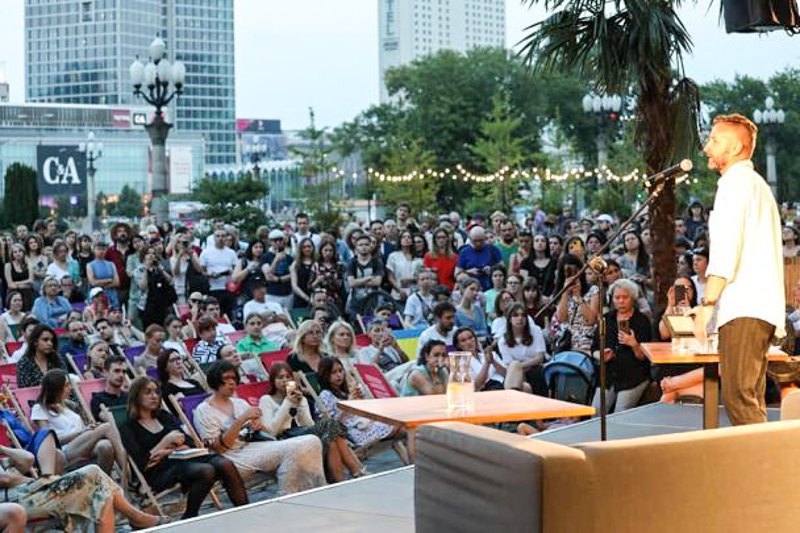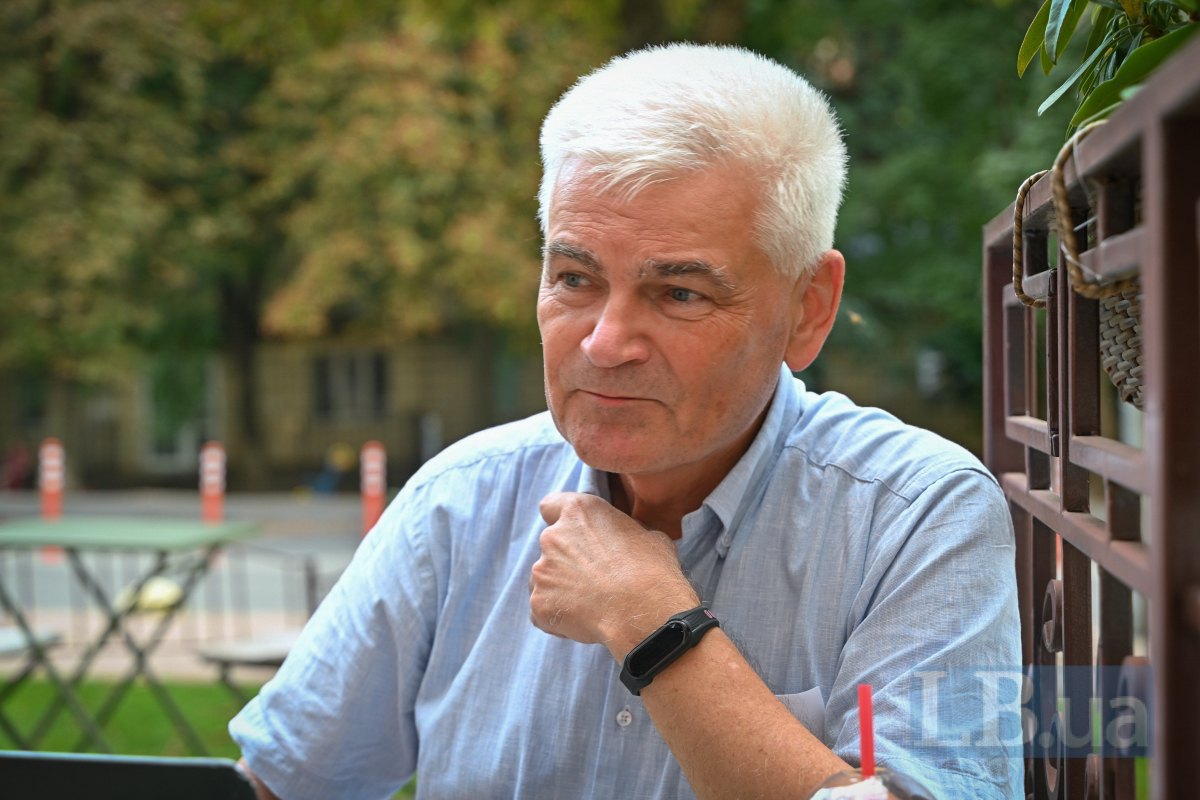
The one who is more righteous will prevail
Recently, Polish President Karol Nawrocki vetoed a law on social support for Ukrainian refugees. What were his motives? Were they anti-Ukrainian, economic, or a matter of political competition?
First of all, it is our internal policy – opposition to the government. A demonstration that the president is not afraid to use such a tool as a veto. And Nawrocki knew that public opinion was on his side. A public opinion poll conducted after the veto showed that 59.8% of respondents supported the president’s decision, while 25.4% opposed it.
During the presidential campaign, his rival Rafał Trzaskowski proposed withdrawing child benefits from Ukrainians who are not employed, and opinion polls showed a similar level of support for this measure.
This is a completely populist decision. It exploits the shift in attitudes towards immigrants from Ukraine, assistance to Ukraine, and the war itself. This change is reflected in opinion polls conducted by the Stand with Ukraine Foundation. The problem, therefore, lies within Polish society, whose views have evolved over the years of war. Strategic military support or integration with the EU is one thing. Support for Ukrainians residing in Poland is another. And the mood of Polish citizens is complex. If you speak directly with those who have Ukrainian neighbours or colleagues, most will say: they are normal people, just like us. But statistical data reveal the persistence of certain prejudices – such as the belief that Ukrainians allegedly enjoy privileged access to medical care. This is unfounded; there is no such preferential treatment. The deterioration of healthcare provision in Poland is a broader issue, and whether or not Ukrainians were present, the problems would be the same. Yet if someone can be blamed, why not them?
According to sociologists, during the first wave of migration after 2014, the integration of Ukrainians proceeded smoothly and even improved Polish attitudes towards them. However, in 2022 the process accelerated sharply, inevitably producing social consequences. A useful comparison can be made with the migration of Poles to the United Kingdom following Poland’s accession to the European Union in 2004. Studies indicate that the response to their arrival influenced the outcome of the Brexit referendum. Although Poles had every right to move under EU rules and broke no laws, the dynamics are always similar: early euphoria gives way to tension and social fatigue.
At the same time, Europe is experiencing an extraordinary demand for security. The pandemic and high inflation have fostered a sense of instability, which politicians know how to exploit: they point to migrants as the source of society’s problems. Ukrainians form the largest migrant group in Poland and, whether we like it or not, have become hostages to these processes. Politicians across the spectrum are now playing the same populist card, with no one offering a serious counterweight. Andrzej Duda made a limited attempt, but as he knew he would not seek re-election, he could afford to act more strategically.
Everyone else is appealing to emotions. The most overtly anti-Ukrainian party, Confederation, is likely to be a decisive force in the next election. Whoever builds a coalition with it will hold power in Poland. This is not merely an anti-Ukrainian force, but in some respects a pro-Russian one. One of its leaders, Sławomir Mentzen, recently declared that if Ukrainians want Starlink, they should pay for it themselves – since Poland covers a substantial share of the Ukrainian army’s access to Starlink – arguing that Polish taxpayers’ money should remain in Poland and rejecting the legitimacy of military aid to Ukraine. His statement is untrue, but it is dangerous.
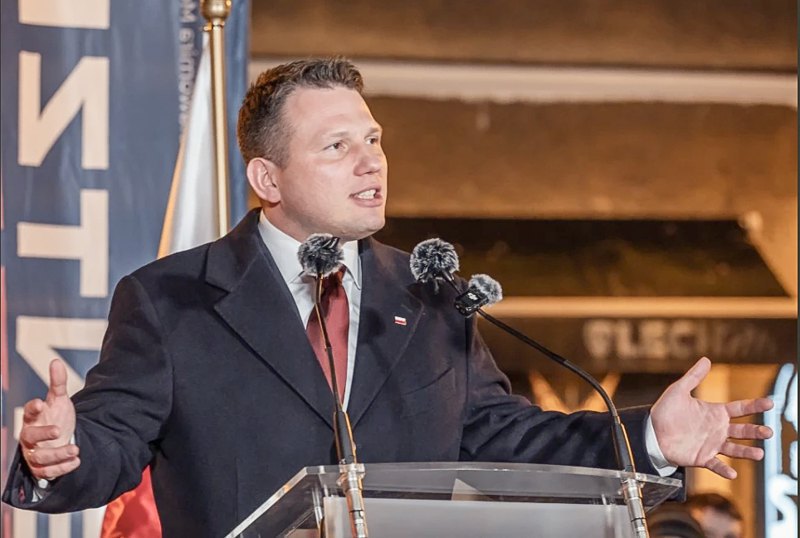
How might political processes develop in the run-up to the 2027 elections? Will rivalry between Donald Tusk’s government and President Nawrocki continue, leaving Ukrainians in Poland and Ukrainian–Polish relations hostage to these destructive dynamics? Will Confederation’s popularity continue to grow in this climate?
The outlook is uncertain. Confederation is not a fully consolidated force, consisting of three factions: Sławomir Mentzen (less nationalist, more libertarian), Krzysztof Bosak (a nationalist faction), and Grzegorz Braun (the most radical and xenophobic). They are not naturally cohesive, but they remain united because it strengthens their position. Whether this alliance will last until the elections is unclear. Both Jarosław Kaczyński’s PiS and Donald Tusk’s Civic Platform are reluctant to see Confederation’s consolidation and are seeking to attract its electorate. Nevertheless, they also recognise that securing a majority in the Sejm may ultimately require an alliance with Confederation or at least part of it. As a result, the entire political landscape is slowly shifting to the right under a veneer of populism.
Most importantly, no one knows the president’s agenda. He was supported in the election by the Law and Justice party, but he is not bound to remain with them. He will likely build his own political project. We shall see. The only certainty is that he is highly ambitious and nationalistic. His views on Ukraine are well known, so there will, unfortunately, be no surprises in this regard.
Polish society is currently split almost evenly between rival political camps, and the upcoming contest will be close. In the presidential election, every thousand votes proved decisive. In parliamentary elections, however, the contest is not about securing an outright majority of votes, but about obtaining enough seats to command a majority in parliament. The system disproportionately rewards the winner. It is a complicated process, and Donald Tusk believes he can succeed by shifting his party’s discourse to the right. For example, he seeks to demonstrate that he does not represent German interests – anti-German sentiment remains strong in Poland – but is instead a “true Pole”, even if this stance runs counter to EU policy. Indeed, the current government is not especially pro-European, even in such strategic areas as the European Green Deal. Although Poles support the development of green energy, they associate the Green Deal with rising prices. Tusk therefore wishes to present himself as defending Polish interests rather than implementing Brussels’ agenda.
It is also possible that a new force will emerge, as occurred when Szymon Hołownia ran for the presidency in 2020 and 2025.
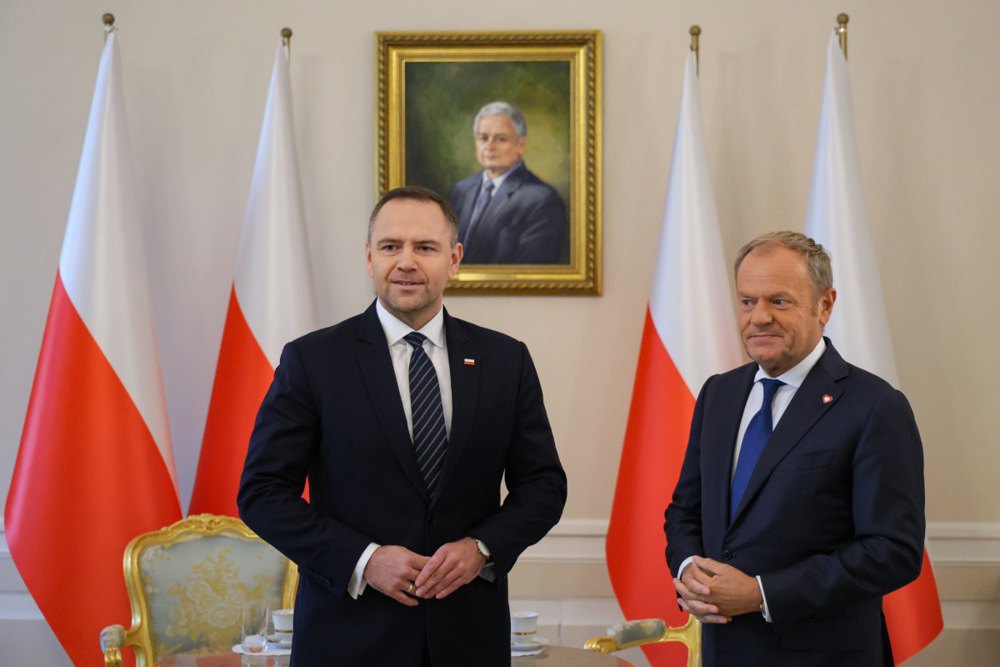
Why, however, is it necessary to be right-wing to succeed in Poland? Why are the most popular political forces not only anti-Ukrainian but also, in some respects, pro-Russian – and why must their opponents play on the same field in order to defeat them?
It should be emphasised that explicitly pro-Russian views remain marginal in Poland. The problem lies elsewhere: anti-Ukrainian sentiments and policies risk contributing to the fulfilment of Russia’s strategic objectives. This concern is frequently raised in the liberal media.
As for the broader state of Polish politics and the strength of the right, the problem is that the left has been weak since 2015, when it lost the Sejm elections. Since then, it has struggled to regain momentum and still polls at no more than 10%. When citizens feel their views are unrepresented, they may abstain from voting, as occurred in the presidential election. At that time, the most loyal segment of the electorate – those aged 60 and above – were so dissatisfied with the programmes of PiS and the Civic Platform (their traditional choices) that turnout among them fell to a record low of under 60%. A similar outcome could occur in 2027, with many staying at home because they see no party reflecting their views and are unwilling to lend support to the right. In that case, power would be decided by those content with the current state of affairs.
Another very serious issue concerns young people. This is the most socially and politically active generation. In the second round of the presidential election, youth turnout reached a record 76%. Yet the decisive question is who they supported. If the outcome had rested solely on their votes, Mentzen would now be president – a troubling prospect. Young people largely rejected the mainstream parties, believing they failed to represent their interests and needs. They viewed the positions of Mentzen or Adrian Zandberg of the Left Together party as the most authentic. Confederation benefited most from this trend. Disturbingly, the most anti-Ukrainian group in Poland today is the youth. They oppose assistance to Ukrainians not only in terms of migration but also in the context of the war.
The spectre of war does not frighten, but it does make people nervous
Why is that? Do young people not feel threatened by Russia? Do they not believe in the danger of war in Europe at all? Are they looking for simple solutions and new faces?
Probably so. They have no memory of the martial law we experienced at the end of communism in Poland; they did not see tanks on the streets. But we remember them. For them, war is an abstraction.
Pay attention to their information space and the media they use.
TikTok?
TikTok, and what do they see there? Mentzen was blocked in the mainstream media and built a successful communication space on TikTok. And he communicated with young voters, relying on stereotypes and misinformation.
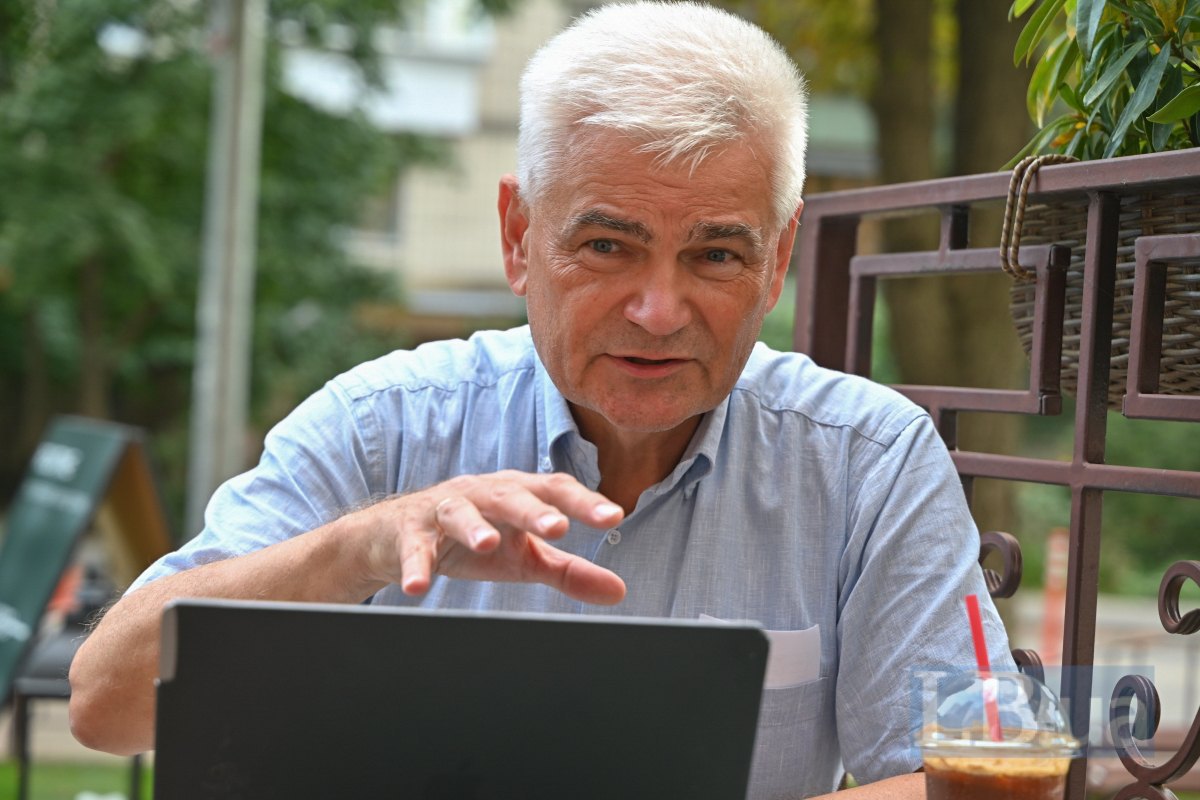
Of course, this is what happened in Romania during the presidential elections.
Exactly. The same processes. And what do young people know about Ukraine in general? Nothing. We think that this war is close to them, because the border is right there! But in reality, it is very far away. And they perceive it through the Ukrainians they see in Poland. Who drive Teslas and so on (and don't seem to be suffering. — Ed.). It's not a completely accurate picture of Ukrainian migration, but it's enough to perpetuate certain narratives among young people that are harmful to Ukrainians. Competition in the labour market is strongest among young people. They are just entering the market, building their positions and seeing that they have to compete with Ukrainians who also occupy positions in it. So there is a rational explanation for this attitude towards Ukrainians.
When there are too many migrants, it is natural that they create social tension.
Objectively, we need even more, because the demographic situation in Poland is catastrophic. Last year, only 252,000 children were born (the lowest birth rate since World War II — Ed.). But these circumstances do not influence public opinion.
That is why there is tension. But do Ukrainians create any particular inconveniences, perhaps turning people against them with their behaviour? On a domestic level.
The incident during the concert (the scandal with the UPA flag during Max Korzh's performance in Warsaw — Ed.) was an isolated case. According to statistics, Ukrainians have not caused an increase in crime, traffic accidents, etc. There is no evidence to suggest that Ukrainians are a group that stands out in society. Of course, they speak Ukrainian or Russian, and some people feel uncomfortable with a foreign language in public spaces. But this is not really a problem. We are very similar in our daily behaviour, and I have not come across any information that Ukrainians are doing anything strange. Colleagues who are more involved in migration issues say that they integrate well through work and where they live. There is a problem on our side, and it is currently the most acute — it is school. Ukrainian children are discriminated against, and this needs to be discussed openly. The state and the authorities need to take action to counteract this.
And the authorities' response is weak, as I understand it.
Weak, but not because the state does not want to respond. Polish systems are decentralised, and everything depends very much on the local situation, at the community level. Warsaw will not be the same as other regions. Civil society organisations are trying to help, but this is too big a problem for them to deal with on their own. Therefore, we will advocate for this issue at the state level so that the situation changes. This is unacceptable; Ukrainian children should not have to endure such treatment.
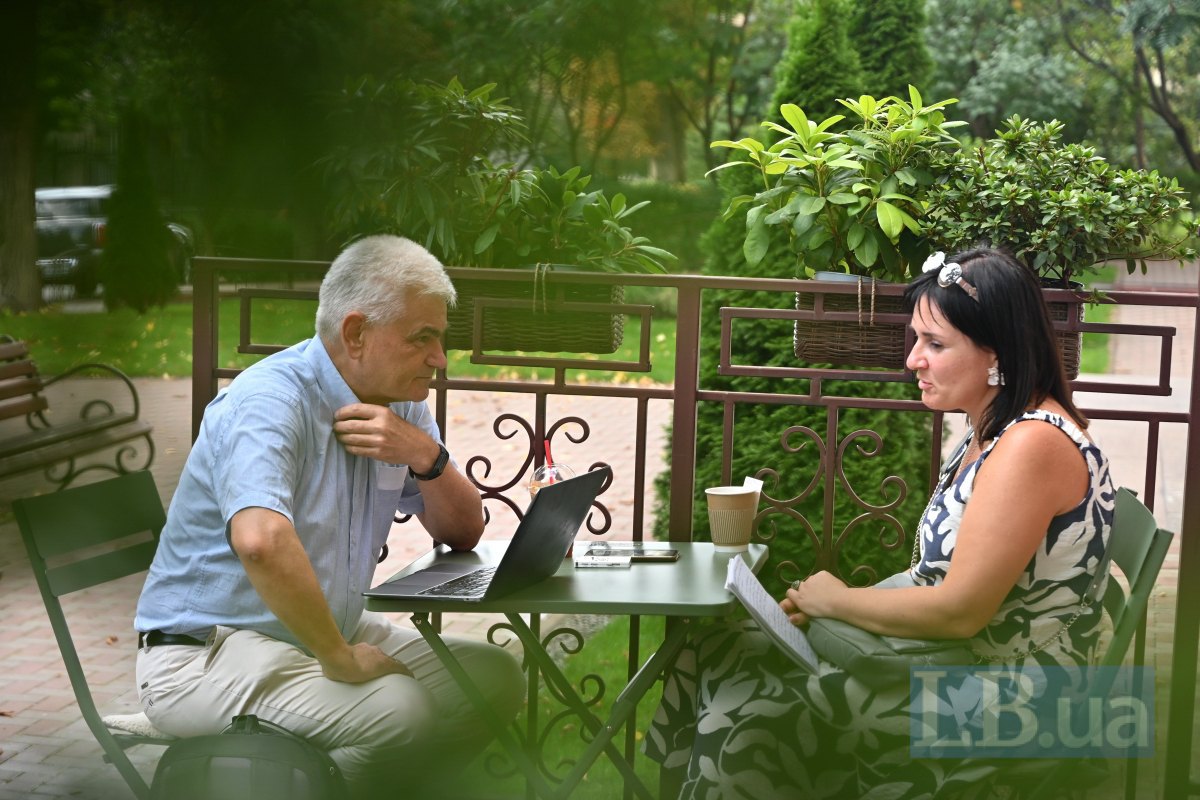
What is primary in this problem: do people perceive politicians' messages and adjust their attitudes accordingly, or do politicians read existing moods?
It is a two-way process. Politicians, of course, read the mood and resort to populism, and unfortunately, this will not change in the near future. That is why we are now doing everything we can to better understand what is happening at the societal level. If we understand where the real points of tension lie — not distorted, but with real grounds (material, etc.) — it will be possible to resist and mobilise the public. But overall, the situation in Europe is bleak, with anti-migration policy becoming official in the EU. This is not just a problem for Poland; it is simply part of a general trend. Although we really need a different migration policy — to be open, not to close our doors.
The real threat of war in Europe also plays a role. We are increasing military spending, everyone is talking about the army in the public sphere, and we do not yet understand how this is changing us — for example, how militarisation makes us more open to violence, etc.
And what exactly in the information space shapes this sense of threat? For example, do they talk on television about shelters, the need for mobilisation, general military training?
They talk about all of this. But I think that most people do not believe that a real war is possible. Because we are a member of NATO and security mechanisms are in place. And we will build a strong army, Russia will not attack if we invest in our defence. Ukraine has proven that even a poorer country can resist the second army in the world. So why shouldn't we be able to cope?
We need to prepare, build shelters, create security systems and crisis management. If only because when there was a flood last year, we discovered that we were not well prepared for extraordinary events.
Volyn: understanding will come through scientists
And now there is anxiety about talk of a possible war in Europe, and young people who should no longer see the world through the prism of World War II, because there are new challenges. Why, then, do politicians repeatedly succeed in mobilising people with the topic of the Volhynia tragedy? Why is it so acutely perceived and effective?
I think it is because it is useful to our politicians. Your politicians have made a lot of mistakes. If they had allowed the exhumations earlier, they would have already reached some kind of decision. Their blocking of the exhumations was completely incomprehensible to the Polish public.
I have the impression that Ukrainian politicians do not understand that the topic of Volhynia has become important to the majority of society, so it can be used for political purposes. That is why gestures of goodwill on the part of the Ukrainian authorities are so important. Especially during the war, when people began to wonder why the issue of exhumation could not be resolved, despite all the help that Poland had provided to Ukraine, while Germany was able to exhume the bodies of fallen Wehrmacht soldiers.
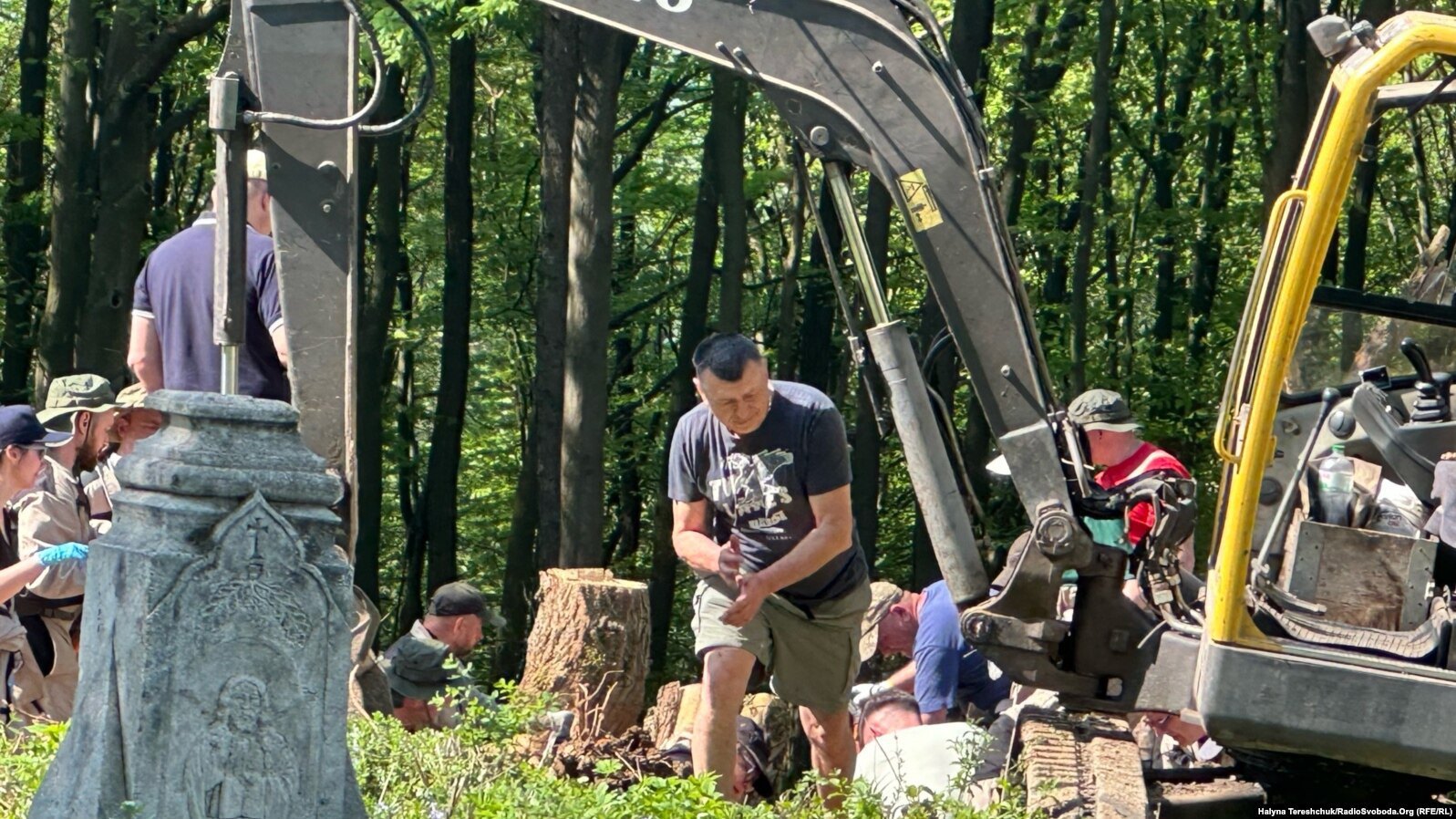
This topic has never caused such a stir in Ukrainian society, so why does it resonate so strongly in Poland? Perhaps because history lessons in Poland do not cover this topic objectively and people do not know that both Ukrainians and Poles committed murders on ethnic grounds?
As our historians argue, these were not random killings, but a planned action by the OUN/UPA in 1943. If so, then it is not only the commanders and fighters who are to blame, but the OUN as a political organisation and the UPA as a military one. The position of historians serves politicians in their actions, hence the Sejm's resolutions defining the crimes in Volhynia as genocide and condemning the ideology of the OUN and the main figures of this movement.
We expect appropriate action on your part, but not everyone understands that it may be asymmetrical due to the completely different perception of the UPA in Ukraine. You are looking not only at this period of the UPA's activity (in Volhynia), but at the entire history of this movement, whose ideology changed over the years of its existence from the pre-war period to the post-war period, in the underground struggle against the USSR. We know little about this, as well as the fact that the main task of the UPA was to fight against the Soviet Union, not Poland.
And we must remember that after the war, when the borders were moved and Volhynia became part of Soviet Ukraine, it was officially forbidden to talk about the events of 1943 in Poland — it was a closed topic. Although the UPA was active for some time in the territory of the Polish-Lithuanian Commonwealth, in the Bieszczady Mountains (Beskids — a mountain range on the border of Ukraine, Poland and Slovakia. — Ed.). So the ‘great struggle’ against the UPA became one of the main myths of communist Poland. The pretext for Operation Vistula (the forced deportation of Ukrainians from their ethnic lands: Lemkivshchyna, Kholmshchyna, Nadsyannya, Podlasie — Ed.) was the murder of communist general Karol Świerczewski, who was ambushed by the UPA. And until the very end of communist Poland, this anti-Ukrainian, anti-insurgent narrative was very active. Films, books, monuments — everything was supported until the very end. As a result, the memories of people who were deported from Volhynia and Galicia to Poland after the war were overlaid with the effects of propaganda from the times of the Polish People's Republic. And when we regained our freedom in 1989, a new chapter began, and the works of historians, liberated memories, and new literature joined the discussion.
Of course, for Ukrainians, Volhynia at that time was land that belonged to the Second Polish Republic and was under German occupation, but not part of the Ukrainian state. But we would like Ukraine to take responsibility for this, even though it cannot be responsible for everything. And when it mythologises the UPA, in our opinion...
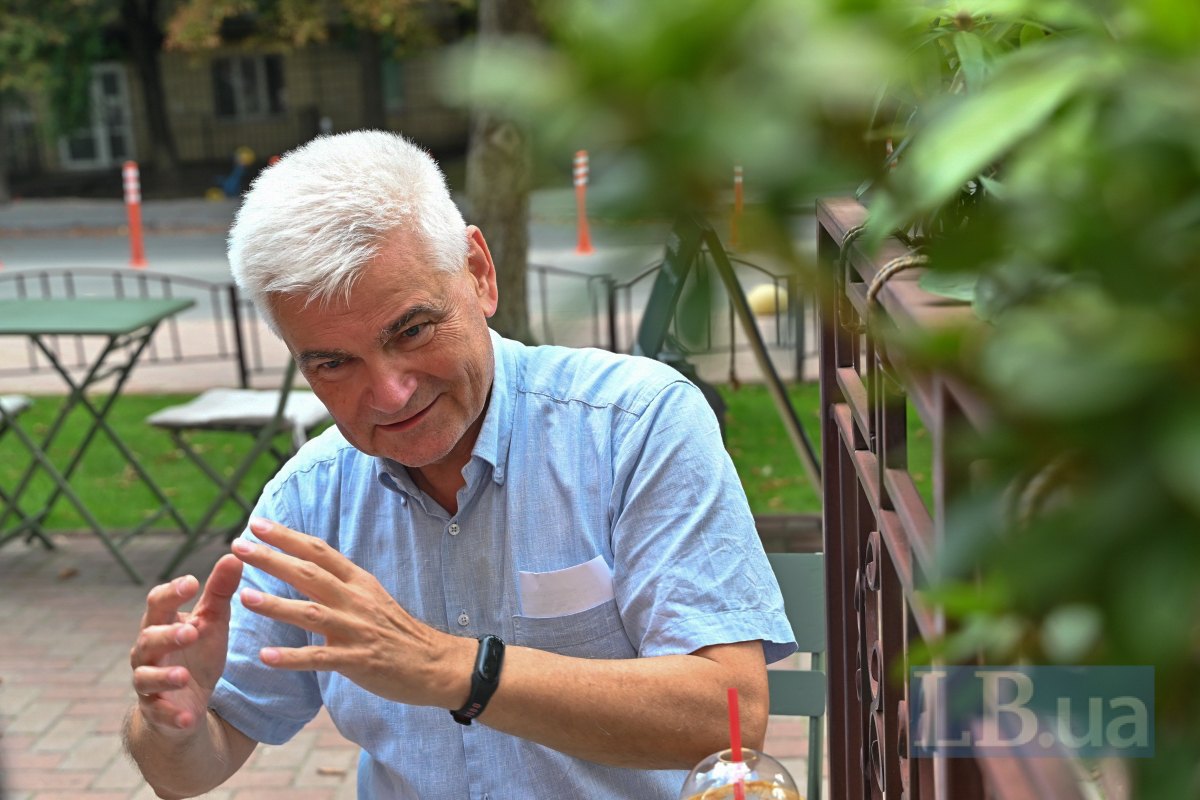
It doesn't repent?
Yes. And the position of some historians, such as Volodymyr Vyatrovych, does not help in the discussion, let's say.
But does the past really concern Poles more than the real threats from Russia? And will events from 80 years ago guide contemporary politics?
The factor of Russian disinformation is also present here. We have seen Russian provocations more than once. Society is very emotional, and it is difficult to find enough positivity for it to neutralise harmful mechanisms. This does not mean that it should not be done, and there is no shortage of attempts. Take the exhumations, for example — in my opinion, they are a good step towards understanding and proof that the parties are capable of finding a formula for cooperation. I spoke with people who worked together with Ukrainians in Puzhnyky in the Ternopil Region (exhumations in the spring of 2025 — Ed.) — it was a fruitful collaboration. There were no misunderstandings or ideological influences.
The best Polish and Ukrainian anthropologists worked there and conducted research. Even in such a complex problem, a solution can be found.
I agree, and our foundation also believes that we must care about the future without forgetting the past and its influence on public opinion. We must prove that there are no threats from the past. This is difficult: the recent border blockades showed how easy it is to stir up emotions in society. But we must show that Ukraine's European integration and its accession to NATO will be beneficial not only for Ukraine, but also for Europe. Not just say it, but prove it. And preparing the arguments is a matter for experts.
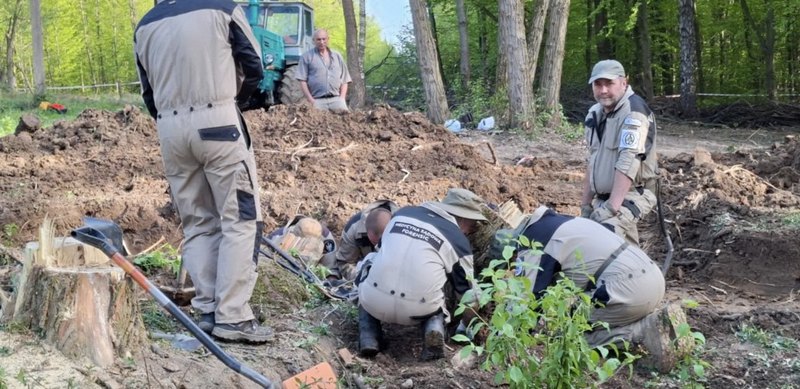
Ukraine is a toxic topic, but the future lies in partnership
Are there political forces or certain circles in Poland that understand that cooperation with Ukraine is beneficial for Poland? For example, in the defence industry. The European Union has set a course for cooperation between countries in this area; it is a global strategy, and Poland, which has such an experienced neighbour on its doorstep, would be remiss not to cooperate. Is there an understanding that close cooperation with Ukraine is beneficial and should be pursued?
I think there is insufficient awareness of this and work needs to be done on it. To say that Ukraine is a source of experience that should be utilised. At the military level, I think this is obvious and it works. But with politicians, it is more complicated. They say one thing to their domestic audience and another on the international stage. Even Karol Nawrocki tells them directly that Ukraine must be supported in the war, but in Poland he acts in his own interests. And this will not change quickly. But it is important that nothing changes at the strategic level.
Incidentally, Polish public opinion has never been particularly pro-Ukrainian. Throughout the 1990s, only slightly more than 10% of Poles expressed sympathy for Ukrainians, while 60-65% expressed antipathy. The situation began to slowly change for the better in the 21st century.
Despite this, when Ukraine became an independent state, Poland was the first to recognise its independence. It was simply that Polish politicians showed a willingness to make decisions contrary to public sentiment. And their attitude towards Ukraine only changed during the Maidan protests and at the beginning of the war. Otherwise...
Stable Ukrainoscepticism?
And very strong. So now, we can say that we are returning to the norm. I would say that we need to promote it in a positive way, but remember that the baseline was not high on the Polish side.
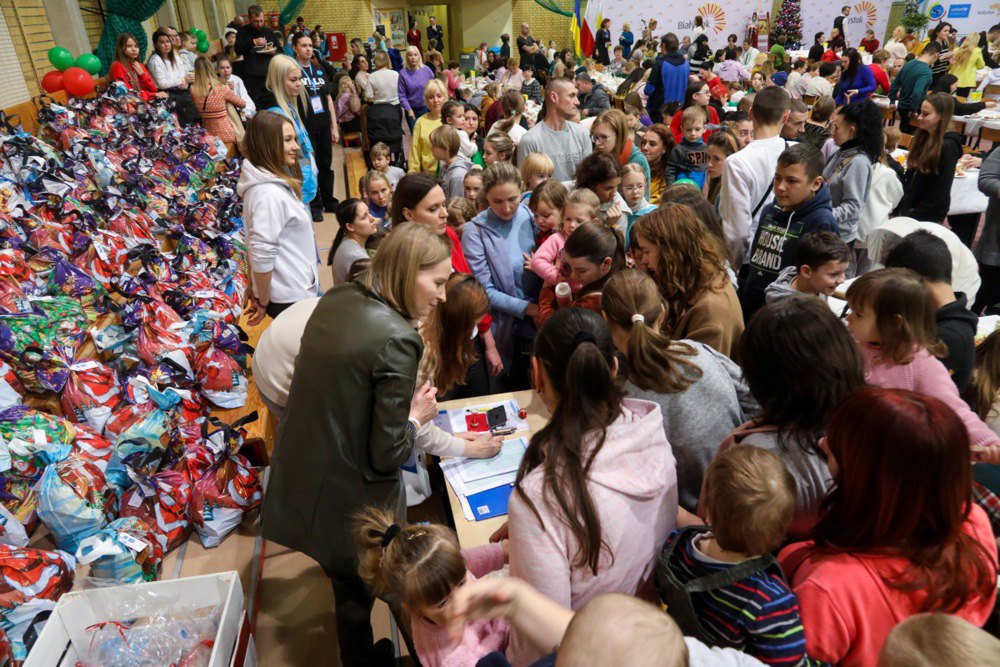
Can any contemporary political force (or new one), any politician, now become the voice of pragmatism and voice unpopular opinions about Ukraine? That it must be supported, and that refugee policy must be stable. Even if it means electoral losses...
The president could and should do this. If Trzaskowski became president, I think he could play this role and influence society. Nawrocki will not.
What about Radosław Sikorski? He gives the impression of a politician capable of making decisive, tough statements. Look at how he reacted to the ban on our commander of the Unmanned Systems Forces, Robert Madyar Brovdi, entering Hungary — at least we really like that.
But the same statements were made about Ukrainian officials. There are rumours that he may become prime minister at the end of the year. But these are speculations based on rumours related to the promotion of Sikorski, who is now not only foreign minister but also deputy prime minister.
And is it definitely a losing strategy to build an election campaign on even slightly pro-Ukrainian policies?
Yes, definitely. The most we can afford to do is at least not to play anti-Ukrainian cards. But we, civil society, will do that. Scientists and public intellectuals are collaborating with their Ukrainian colleagues, and this is bearing fruit.
When we suddenly return to building good neighbourly relations — equal, partnership-based relations, because Ukraine will no longer be a recipient of aid — what could be the common ground for this? It is frightening that the Volhynia tragedy will remain in the minds of Poles, and we will not forget that farmers poured Ukrainian grain on the ground and our children were bullied in Polish schools.
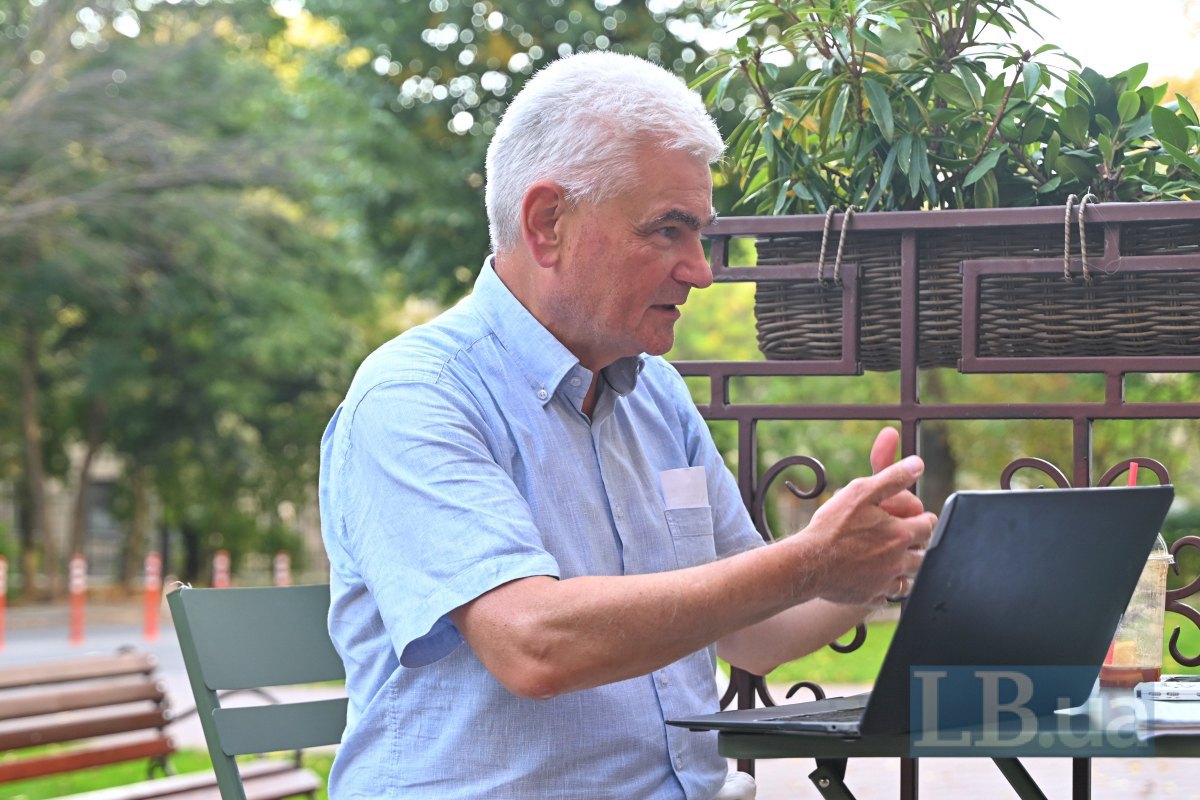
The process of European integration is important. It changes a lot. We saw how our relations with our neighbours changed after we became part of the EU. They became easier at the business level. When the border blockades continued and politicians did not know how to deal with it, Polish entrepreneurs were even more on the side of the Ukrainians. Because we sell more to Ukraine than we buy from it, and the blockade was very damaging to Polish business. He was opposed to the blockade, but did not know how to influence his fellow farmers.
Similarly, after the president's veto, almost all business organisations in Poland called for the protection of Ukrainian immigrants. Analytical materials appeared in the media demonstrating the contribution of Ukrainians to Polish GDP and their importance to the Polish economy.
And there are many areas where such cooperation will develop almost automatically. Cultural exchange at the level of individuals plays a big role. Ukrainian students in Poland make friends, return home and maintain ties. Plus, there is tourism, in which Ukraine has great potential. So I am not concerned that our societies will be hostile towards each other. The border will be open, as it is with Germany or the Czech Republic, and everything will be fine.
We have no unsolvable problems, but we do have a common enemy. I think this argument will be the most compelling one way or another. We need to promote more common narratives, positive ones — about periods of shared history, the formation of political culture during the First Polish-Lithuanian Commonwealth. After all, parliamentarism in Poland has the same origins as in Ukraine. Few people remember this: you teach history in your own way, we teach it in ours. But we can think about how to reconcile this.
We can talk about how we built institutions together in the past and that these processes can be continued within the EU. We can build a strong partnership within the Union. Because it is not such a friendly space — you have to know how to fight for your interests. And together with Ukraine, we can stand with Germany or against Germany or, say, the Hungarians (laughs — Ed.). By the way, some Polish right-wingers are very afraid that you will now cooperate more closely with the Germans behind Poland's back.
And cultural diplomacy works. In Poland, there is no need to introduce Zhadan — he is well known. Exhibitions, translations of literature into Polish and Ukrainian — it all works. We just need to support these processes. And I think there will be a single space and cooperation.
